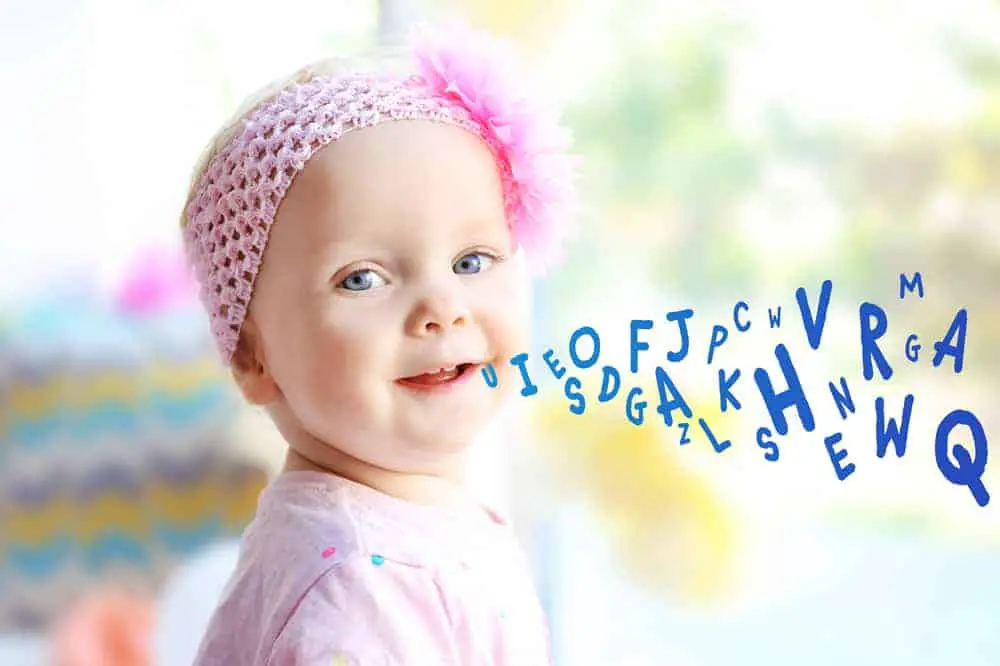By Lori Ennis, M.S. Ed
You want to know how to help your toddler with speech delay. It’s what parents do best—helping their children in areas where they need help. And, you’ve of course consulted a speech-language pathologist to ask how to deal with speech delay in toddlers so your little one can continue to grow and develop in speech and language. Your next step? Finding the best speech delay exercises for your toddler.
Are there speech delay exercises for toddlers that you can do at home? Absolutely, and we’ve asked clinicians for how to help your toddler with speech delay. Check out these speech delay exercises for toddlers and feel empowered in helping your little one’s speech and language blossom.
How to Help Your Toddler with Speech Delay
You recognize that there is a speech delay with your toddler. Whether it’s an articulation issue, an enunciation or pronunciation issue or something in their motor planning that may be preventing typical speech development (or something completely different), you find yourself googling “Tips for speech delayed toddler” or “How to help your toddler with speech delay.”
We know because we’ve been there. If you’re the parent of a toddler with speech delays, how to help them communicate effectively is one of your main concerns. Effective communication helps eliminate frustration on your end and theirs while preparing them for preschool, school and life.
So really, are there speech delay exercises for toddlers that you can do at home? Do they really make a difference in how to help your toddler with a speech delay?
The answer is a resounding, “YES!” and we’ll share them.

Take it From the Experts
The American Speech-Language-Hearing Association is a wealth of resource when it comes to ways you can encourage development when you have a toddler with speech delays. When it comes to how to help your toddler with speech delay, they recommend some of the following activities to encourage word development, proper articulation and enunciation and auditory processing/comprehension:
- Model good speech. Be clear and precise in your speech to and around them.
- Make sure you use the appropriate word for a baby-talk word as well. You don’t have to stop saying the baby-talk word; just be sure to give them the correct word. (“You’d like your yogi? Sure, here is your yogurt.”)
- Help your child create catalogs of categories for words. “Look, there’s a dog. It’s an animal. What else is an animal? Yes, a cat is an animal. So is a lion. So is a cow.”
- Have them develop speech with the ‘Yes/No’ game. “Do cows eat at the dinner table?” “Am I your mother?” “Do you have four ears?” “Are you wearing a red shirt?” This can be a fun game for your toddler to try and trick you.
- When asking questions of your toddler with a speech delay, give choices. “Do you want to eat spaghetti or grilled cheese?” The more words they hear in context, the better their vocabulary base is.
- Sing songs and tell nursery rhymes and read, read, read to your toddler. The more words they’re exposed to, the better. A recent study suggested that children who were read to each night were exposed to more than a million words more than their peers who were not read to.
Will Oral-Motor Exercises Make a Difference?
Dr. Gregory Lof is an Assistant Professor and the Associate Director of the Graduate Program in Communication Studies and Disorders at the MGH Institute of Health Professions. He has suggested that oral-motor exercises may not be as beneficial to speech and language development in toddlers as some might believe.
Dr. Lof believes and offers additional research that suggests oral-motor exercises like blowing bubbles or whistling or chewing on a talking tool may be exercises in futility as they don’t strengthen necessary muscles, and goes one step further in suggesting that strength is not necessarily crucial for speaking anyway.

Best Tips to Help Speech Delay in Toddlers
So what do Dr. Lof and so many other clinicians he cites suggest as tips for speech delayed toddler help? He advises working on speech tasks that will actually relate to speech production. In this, you can over pronounce early sounds and be sure to pronounce them very clearly.
Typically sounds that toddlers with speech delays struggle with are /p/, /b/, /m/, /n/, /h/ and /w/. You can help your toddler by being sure (particularly when beginning and ending consonants) to really enunciate the letters. ‘B’ in ‘bubble’ has a lot of opportunity for over pronunciation and enunciation, but any time you use words with those consonants, be sure to give them definition clearly.
Additionally, making eye contact with your child when you are speaking to him or her is important. Not only does eye contact culturally build bonds and relationship, but it also allows your toddler to look at the way you’re forming your letters as you make sounds and words. This is something she can copy as she’s working on developing her own speech.
Real Life Brings about Real Speech
Most importantly, use everyday situations to help your toddler with speech delays. By this we mean spend a lot of time talking to your child, and through your day. When he gets up in the morning and you’re helping him get dressed, name his clothes—“This is your shirt! Those are your pants! Now it’s time for socks.” When you’re at breakfast, discuss how you’re preparing it, what it will do for your brain and your body—“This is orange juice, and it will help build your bones and keep you healthy!” “I had to crack this egg open before I could cook it. This what cracking your egg open looks like.”
Especially if your child’s responses are challenging to understand, allow them to respond to you and converse with you so they have the practice with not just speech, but speech that is contextually appropriate and meaningful to them. There’s often little fun in ‘speaking’ words only to speak or to learn, but when speech and language acquisition occurs naturally, it makes a more permanent impact.

If you’re looking for more tips on how to help your toddler with speech delay, thankfully there are lots of additional resources to which you can turn as well. If you’re unsure as to whether your toddler’s speech is typical for her peers, or you’re interested in any more tips and information, you can check out the Toddler Speech Boost site and download their free milestone assessment guide.

